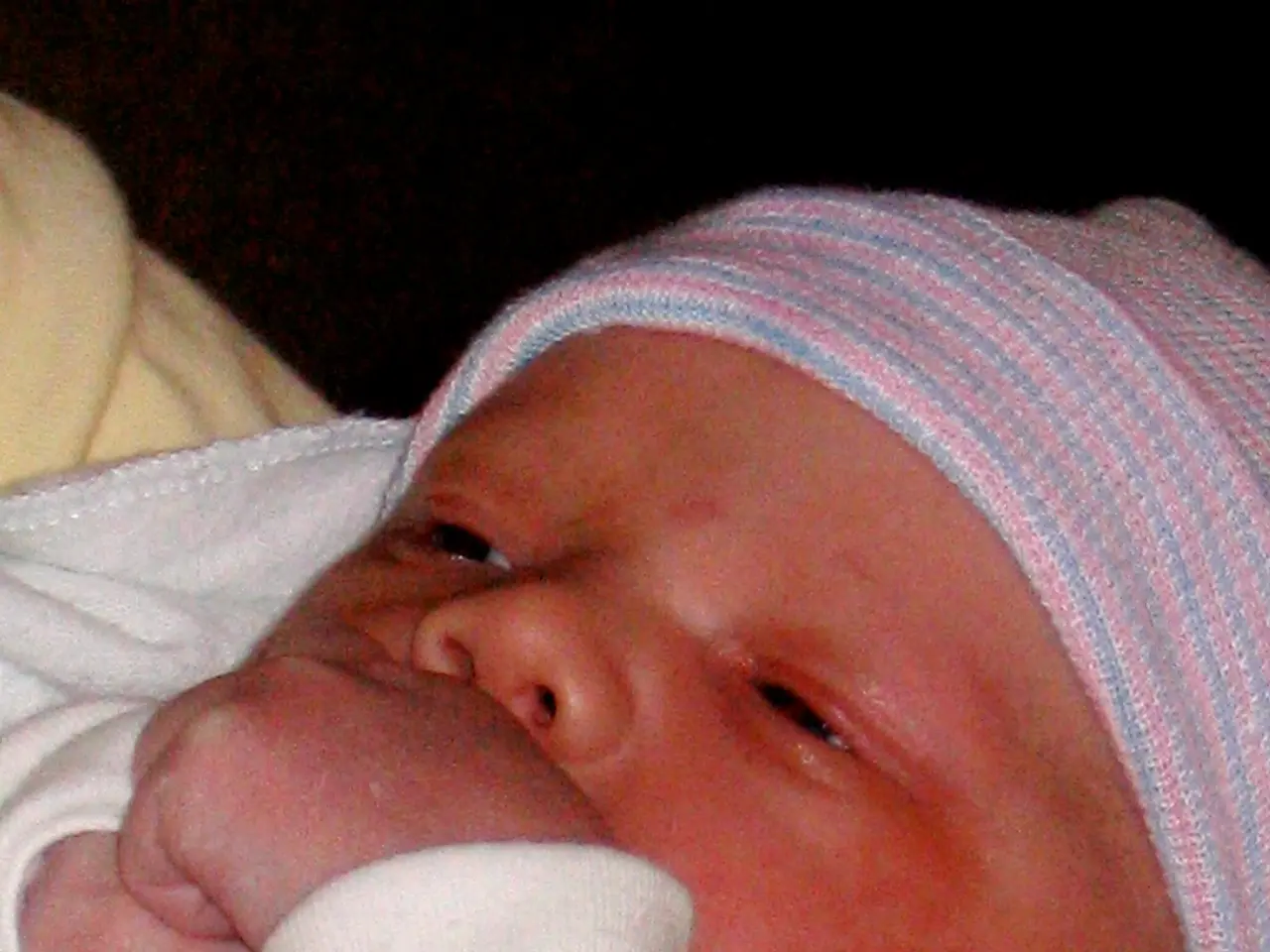Infant digestion troubles: Why gripe water might not be the ideal solution for your irritable, gassy, or colicky baby
In the world of parenting, finding solutions for common issues like colic, gas, and fussiness in babies can be a source of concern. One over-the-counter remedy that has been marketed as a solution is gripe water. However, it's essential to delve deeper into the safety and effectiveness of this product.
Gripe water, a concoction of ingredients such as fennel, ginger, sodium bicarbonate (baking soda), and flavorings, claims to alleviate symptoms associated with colic. But, there is no scientific evidence to support the claim that these ingredients work in babies to relieve colic symptoms.
Pediatrician Christina Vernace warns against using gripe water due to its lack of regulation and the potential risks it may pose to babies. The U.S. Food and Drug Administration (FDA) does not regulate gripe water as it is not considered a medicine or food, leaving the ingredients and manufacturing process at the discretion of the company.
This lack of regulation has led to several recalls over the last 15 years. One recall was due to the presence of the parasite cryptosporidium, which can cause severe watery diarrhea. Another recall was due to an undissolved ingredient that could be a choking hazard.
Moreover, the original formulation of gripe water contained sugar and alcohol, which are not suitable for a baby's diet. While some modern formulations may have removed these ingredients, the safety and effectiveness of gripe water remain unproven.
It's important to note that there is no assurance that gripe water is safe or effective for babies, as it hasn't been evaluated by the FDA. In contrast, research published by the National Institutes of Health suggests the probiotic Lactobacillus reuteri may provide relief for babies with colic.
So, what's the best course of action when dealing with colic symptoms in babies? The first step should be to talk with a pediatrician to determine the cause and suggest the best remedies. Gassy babies can be soothed with methods like burping, bicycling their legs, changing formula, and using gas drops that contain simethicone.
Colic is also managed with soothing techniques like rocking, swaddling, warm baths, white noise, and using a pacifier. If you are concerned about gas, fussiness, or colic symptoms in your baby, it is recommended to talk with a children's healthcare provider for advice.
In conclusion, while gripe water may have been a popular remedy in the past, its safety and effectiveness are questionable. Parents are advised to prioritise professional medical advice and traditional soothing techniques when dealing with colic symptoms in their babies.
Read also:
- Nightly sweat episodes linked to GERD: Crucial insights explained
- Antitussives: List of Examples, Functions, Adverse Reactions, and Additional Details
- Asthma Diagnosis: Exploring FeNO Tests and Related Treatments
- Unfortunate Financial Disarray for a Family from California After an Expensive Emergency Room Visit with Their Burned Infant








